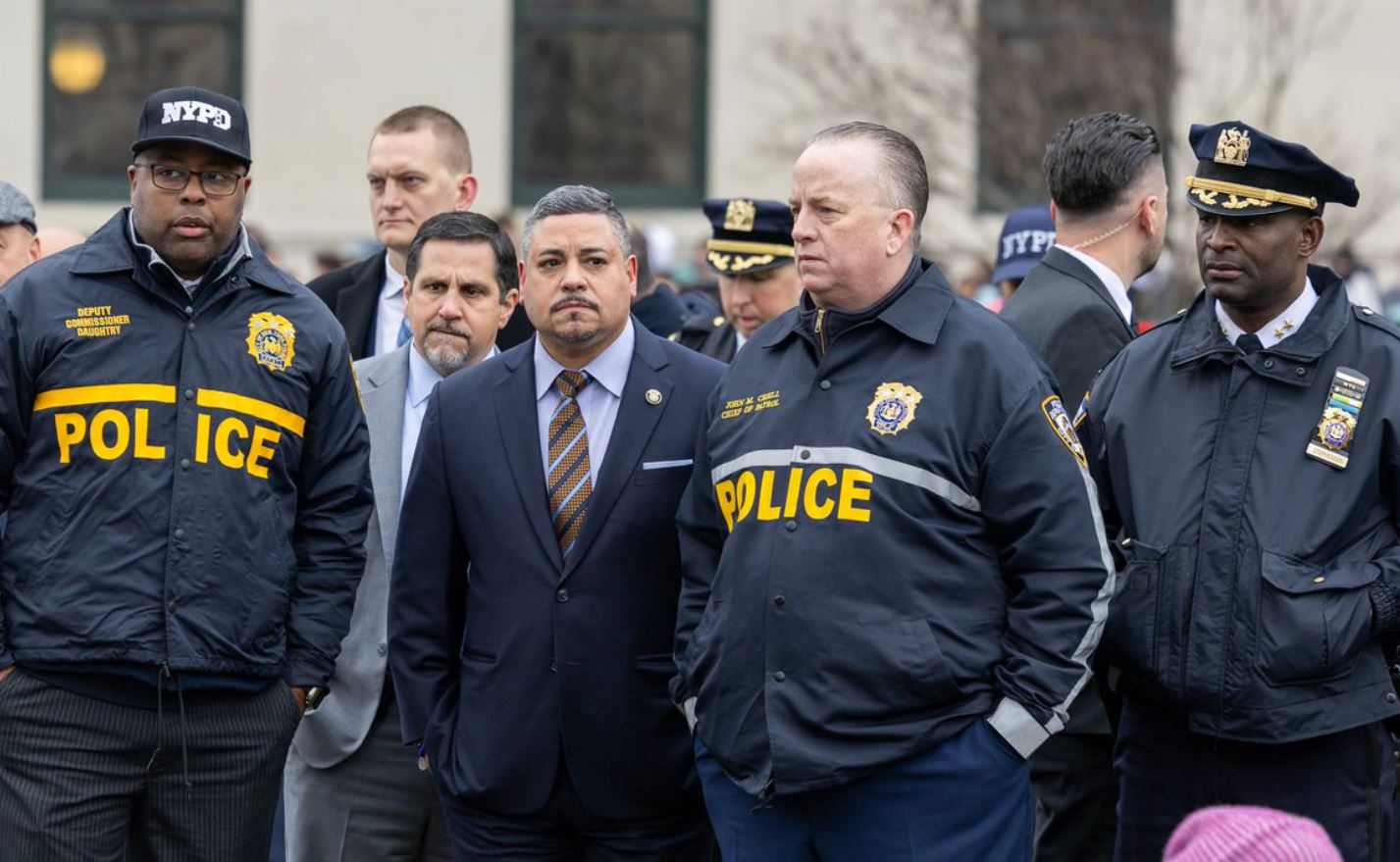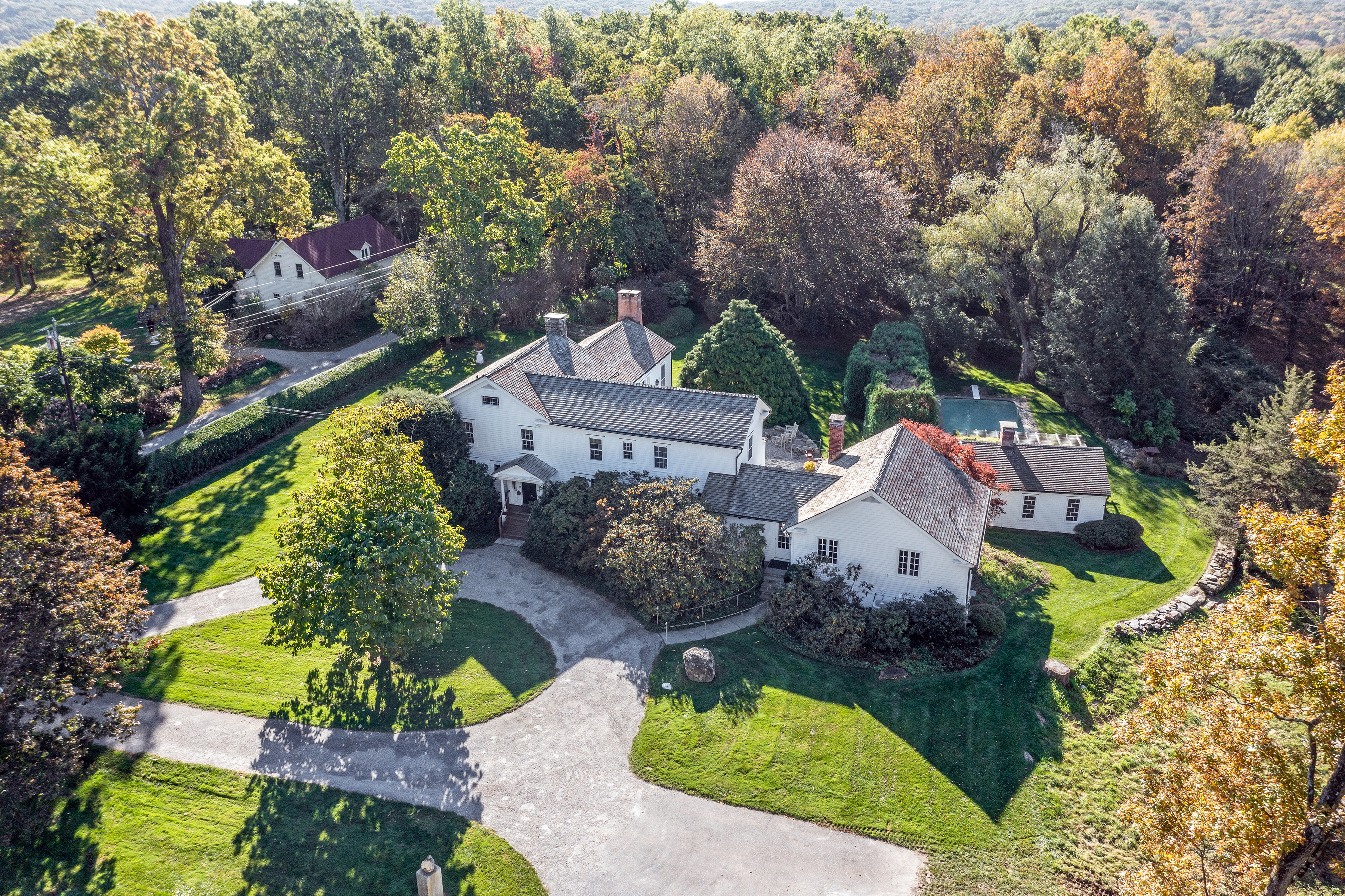When Adolfo Carrion needs to remind himself why he’s running a long shot bid for mayor, he heads to the Bronx, the gritty birthplace of his political career, where he once blazed so brightly — and where there’s still a good chance that people will remember him.
He stalks subway stops, works commercial strips, greets parents outside schools. He sees flickers of recognition in people’s eyes, and it gives him hope.
Fruit vendors and knickknack merchants rise from their folding chairs. Men grip him. Moms hug him. Grandmothers coo in his ear. They take pictures with him. They call out from passing cars.
"Carrion!"
To those who can't place him, he explains.
“I used to be borough president for the Bronx,” he tells them, in English and Spanish. “I left to go work with the president. Now I’m back. And I’m running for mayor.”
The Bronx knows Carrion, 52, as a Democrat, so he has to clarify that he’s not a member of that organization anymore. He's running on the Independence Party line now -- a much more difficult way to get votes.
Local
He characterizes the break as an act of political honor: the Democrats have taken the poor and minorities for granted, he says, and the Republicans have ignored them. That’s why most don’t bother to vote.
A self-described social progressive and fiscal conservative, Carrion’s policy points — expanded education reform, more affordable housing, cutting red tape for businesses and putting more cops on the beat — don’t differ much from those of Democrat Bill de Blasio, whom he dismisses as “a throwback,” and Republican Joe Lhota, whom he calls “Giuliani lite.”
So he tries to distinguish himself as the race’s only Latino, a group that he argues has been too passive in local electoral politics. About 20 percent of registered Hispanics voted in the 2009 general elections, according to the Center for Urban Research at the CUNY Graduate Center. That was down from 31 percent in 2005, and 27 percent in 2001.
“If our community rises up and says, ‘You know what, we’re interested and we’re going to show up and help decide who the mayor of the city is,’ it changes the politics of New York and it has reverberations for the rest of the country,” he told a prospective voter on White Plains Road.
When he’s not in the Bronx, he’s likely campaigning in the Hispanic-heavy districts of East Harlem, Washington Heights, the Lower East Side, Jackson Heights, Corona, Sunnyside.
A former public school teacher and city planner whose parents emigrated from Puerto Rico, Carrion came up through the ranks of local politics and won landslide elections before leaving the city in 2009 to become President Barack Obama’s director of urban affairs.
But while Carrion was away, his political capital tanked.
His White House portfolio never became an Obama administration priority. And he was dogged by an investigation of his relationship with an architect who renovated the porch of his City Island home — the architect turned out to have contracts with the Bronx while Carrion was borough president, and Carrion ended up paying a $10,000 fine. Carrion now says that he agreed to the penalty to avoid a more costly legal fight.
Carrion’s White House job lasted 15 months. He was named a regional director of the U.S. Department of Housing and Urban Development, which allowed him to return to New York with his wife and four children. He left HUD in early 2012 to create his own consulting business. And he began planning a return to elected office.
Once a formidable fundraiser, Carrion had more than $1 million left over from an abandoned bid for city comptroller. With the Democratic mayoral primary field growing crowded, Carrion dropped his party affiliation and asked the Republican Party and Independence Party to run on their ballot lines. The GOP declined. Independence leaders agreed.
At first, Carrion was seen as a spoiler who could draw votes from the Democratic nominee. The current Bronx Borough President, Ruben Diaz, accused Carrion of abandoning the machine that built his career. Diaz vowed to “make him pay” at the ballot box.
But Carrion hasn't turned out to be much of a threat to anyone. He polls in the single digits, even among Latinos and in the Bronx. In an early October Quinnipiac University survey, 73 percent of likely voters — and 66 percent of Hispanics — said they didn’t know enough about Carrion to say whether they liked him.
Carrion, relentlessly upbeat on the trail, tries to find the upside.
“The silver lining in that cloud is that when somebody doesn’t know enough about you to form an opinion, they’re essentially a blank slate, and you have an opportunity to really introduce yourself,” he said during a break from campaigning over a toasted corn muffin and coffee at a diner in the Pelham Parkway section of the Bronx.
As the race's Independent, Carrion also portrays himself as a candidate who won’t be beholden to party bosses or special interests. “I don’t want to be part of the charade anymore,” he said.
Despite his time away from New York, Carrion receives warm welcomes on his walkabouts through the Bronx. His former constituents pose for pictures with him, confide their troubles, wish him luck. He clasps their hands in his, and holds on as he tries to find common connections — through family, friends, past political battles.
“Glad you’re back in the borough,” a man outside the Allerton Avenue subway stop told him on a recent afternoon.
“Long time no see,” another said.
In more intimate settings, Carrion can come across as an idealistic, if self-absorbed, civics teacher. During a tour of the DreamYard arts-education facility in Morrisania, he went on a lengthy monologue about voter engagement. And he framed his candidacy as part of a broader effort to enlighten and employ marginalized communities — the young and the immigrants, particularly Latinos. At one point he appeared to get a little choked up.
“Whether or not I become mayor is less important than if we actually do this,” he told a circle of teachers and students who’d assembled to hear him speak. “I think a big win for us is to have a political discussion that leads to real impact on people’s lives.”
When you’re polling at 2 percent, that impact can feel distant.
Later, greeting shoppers at Fordham Plaza, Carrion came across a woman in a wheelchair: Ursula Roundtree, 52, who’d just been handed one of his fliers.
“I have no idea who this is,” she sighed.
“Hi, ma’am, I’m Adolfo Carrion, I’m running for mayor,” the candidate said.
“So, you’re going to help me?” Roundtree asked
“If you hire me, I’ll help you,” Carrion said.
They talked a while about her problems dealing with Medicare and private health insurance, and Carrion moved on.
“I still don’t know who he is,” Roundtree said.
Nearby, on Fordham Road, Carrion was approached by Jose Velez, 33, a home health aide who'd once worked at a music-education program. He pressed Carrion into a discussion about broadening early-education opportunities. It started to rain, so they ducked into a McDonald’s and posed together for a photo.
Velez told him, “You‘ve got my vote.”
Afterward, Velez said he was impressed that Carrion had cared enough to stop and chat.
“He seems sincere. I like him. I think he understands,” Velez said.
Soon, Carrion was back on the street, hand out, telling the people of his home borough that he was back home.



